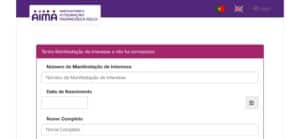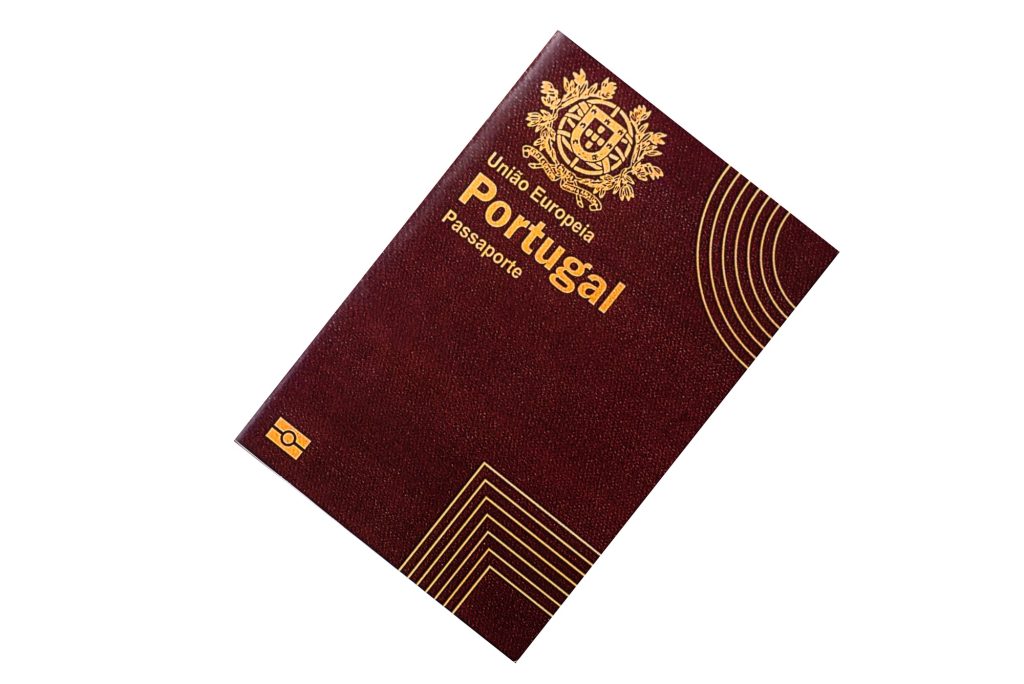Portugal’s Expression of Interest System: The end of an era
Portugal’s Expression of Interest (Manifestação de Interesse) system underwent dramatic changes between 2022 and 2025, culminating in its official termination. The system was suspended on June 3, 2024, partially reinstated in November 2024 for limited cases, and will definitively end on December 31, 2025. This report provides comprehensive guidance on the system’s evolution, current status, and alternative pathways for Portuguese immigration.
Critical context: What the Expression of Interest system actually was
Contrary to popular belief, the Expression of Interest system never applied to the full range of D visa categories. It specifically covered only two situations under Articles 88.2 and 89.2 of Law 23/2007 – essentially serving as a regularization mechanism for people already working in Portugal without proper visas. The standard D1–D9 visa categories (work, investment, study, retirement, digital nomad) were always processed through Portuguese consulates abroad and were never part of the Expression of Interest system.
The system allowed non-EU citizens to enter Portugal on tourist visas and later apply for residence permits if they found employment and made social security contributions. This backdoor regularization pathway attracted hundreds of thousands of applicants before its suspension.
Complete timeline of regulation changes (2022-2025)
The transformation of Portugal’s immigration system represents one of the most significant policy shifts in recent European immigration history. In 2022, the system operated under extensions and delays, with expired documents extended through March 31, 2022, and the planned dissolution of SEF postponed twice as the process was deemed “insufficiently mature.”
2023 marked the great transition year. The government approved AIMA’s creation on April 6, with presidential promulgation following on May 24. October 29, 2023, SEF officially dissolved and AIMA began operations, inheriting approximately 347,000 pending immigration cases and facing immediate challenges with only 714 employees (41% of expected staffing). PÚBLICO +4
The crisis year of 2024 brought dramatic changes. On June 3, 2024, Decree-Law 37-A/2024 suspended the Expression of Interest system, prohibiting new applications from non-EU nationals entering on tourist visas. This caused an immediate 80% reduction in residency applications. However,
Law 40/2024 published on November 7, 2024, provided limited reinstatement for those who had contributed to Social Security for at least 12 months before June 3, 2024, based on the legal principle of “protection of trust.”
2025 brought further restrictions. On July 16, 2025, Parliament approved comprehensive immigration law reforms that definitively eliminate the Expression of Interest mechanism, establishing December 31, 2025, as the final deadline for transitional cases.
The new framework requires mandatory residence visas obtained through consular channels before entering Portugal.
AIMA platform updates and the myth of the point-based system
Portugal has not implemented a point-based scoring system for immigration applications, despite recommendations from researchers to adopt models similar to Canada or Australia. Instead, Portugal maintains a qualification-based system with specific requirements for each visa category.

The AIMA platform underwent significant digital transformation in 2024-2025, introducing automated appointment scheduling that eliminated the previous “slot racing” system, digital-first processing with online document submission, and multi-language support accepting documents in Portuguese, English, French, and Spanish without translation. The platform now features chronological processing rather than random selection, enhanced integration with Social Security databases, and mobile-responsive design for improved accessibility.
New specialized portals launched include a family reunification portal prioritizing families with children aged 5-10 and streamlined interfaces for different visa categories. Technical improvements focused on reducing the massive backlog inherited from SEF, with AIMA processing approximately 6,000 cases daily across all types.
Application processes and visa categories affected
The Expression of Interest system only ever applied to two specific pathways. Article 88.2 covered employed workers already in Portugal without proper work visas, requiring valid work contracts, proof of legal entry, 12+ months of Social Security contributions, and clean criminal records. Article 89.2 covered self-employed individuals, requiring business registration, service contracts, and income proof through “green receipts.”
For the standard D visa categories unaffected by Expression of Interest, application processes remain through Portuguese consulates. The D1 work visa requires employment contracts and takes 60-90 days for processing. The D2 entrepreneur visa needs business plans and €10,440 in financial resources. The D3 highly qualified activities visa demands salaries 1.5x the national average. Student visas (D4/D5) require educational institution acceptance. The D6 family reunification visa needs relationship proof and sponsor income verification.
The popular D7 passive income/retirement visa requires €870/month in passive income, while the D8 digital nomad visa demands €3,280/month from remote work. The D9 Golden Visa involves qualifying investments starting at €250,000, and the job seeker visa provides 120 days to find employment with €2,460 in financial resources.
Required documents and current processing challenges
Documentation requirements vary by visa type but universally include valid passports, criminal background checks (apostilled and less than 6 months old), medical certificates, proof of accommodation, travel or health insurance with €30,000+ coverage, and financial proof meeting specific thresholds. Since April 2025, AIMA enforces a strict “complete application” rule with automatic rejection for any missing documents, and Portuguese Social Security Numbers (NISS) became mandatory for all applications.
Current processing times reflect a system in crisis. Standard visas take 60-90 days at consulates, while Golden Visas face 18-24 month delays. AIMA residence permit processing varies dramatically by location, with major cities like Lisbon and Porto experiencing 120+ day waits for appointments, while smaller cities may offer appointments within 15-30 days. The agency inherited over 400,000 pending cases and targets clearing all backlogs by June 30, 2025, though this appears optimistic given current processing rates.
Fee structures include €110 for most visa applications, €6,045.20 for Golden Visas with certified documents, and €170 for residence permits. Additional costs for translations, apostilles, and legal services can add €1,000-€3,000 to the total expense. Many applicants now resort to legal action (€795+) to force AIMA appointments, with a 90% success rate for such challenges.
Common rejection reasons and prevention strategies
The most common rejection reason is incomplete applications, followed by missing NISS numbers (mandatory since April 2025), invalid or expired documentation, insufficient income proof, and housing documentation issues. Visa-specific patterns show D7 rejections often stem from inconsistent passive income documentation, D8 rejections from insufficient monthly income proof, and D2 rejections from missing business registration.
Critical documentation errors include unregistered leases (landlords must register with Finanças), short-term rentals being rejected for residence permits, underreported salaries by employers trying to reduce Social Security contributions, and missing apostilles on foreign documents. Technical issues like blurry scans, missing certified translations, and expired criminal record certificates also cause frequent rejections.
To avoid these pitfalls, applicants should start document preparation 6+ months before application, triple-check all documents for completeness and validity, ensure lease registration with tax authorities, maintain consistent Social Security contributions, and consider professional legal assistance for complex cases. Health insurance must provide €30,000 minimum coverage – travel insurance is not accepted.
The appeals process and second chances
Portugal’s legal framework provides multiple appeal mechanisms with strict time limits. Administrative complaints must be filed within 15 days of rejection notification. Hierarchical appeals to the Minister of Foreign Affairs can be submitted within 3 months. Administrative court actions in Lisbon also have a 3-month deadline. These options are not mutually exclusive and can be pursued simultaneously.
AIMA currently provides a 10-day window after rejection to submit missing documents through their portal, addressing the 108,000 second chances announced for fee payment issues. Legal action through Ação de Intimação para Proteção de Direitos costs €500-€1,500 in lawyer fees but achieves high success rates, typically resulting in AIMA scheduling appointments within 30 days of court orders.
First-time applications versus renewals
First-time applications require mandatory in-person AIMA appointments for biometric data collection, VFS Global complete documentation sets, stricter eligibility reviews, and face zero tolerance for missing documents since April 2025. Processing takes 6-11 weeks for card delivery after appointments. Renewals enjoy simplified processes through IRN offices rather than AIMA, relaxed documentation requirements, potential for automatic online renewal, and faster processing times. Applications must be submitted within 30 days before expiry, with a 6-month grace period available.
Impact of the SEF to AIMA transition
The October 2023 transition from SEF to AIMA created unprecedented challenges. AIMA inherited 347,000 pending cases with only 714 employees initially, leading to massive backlogs and 158% increase in complaints. Service distribution split immigration functions across multiple agencies, with AIMA handling administrative tasks, PSP managing airport borders, and GNR controlling land borders.
The transition’s economic impact proved significant, with €1.6 billion in migrant contributions to Portugal’s economy in 2022 followed by an 80% decrease in residency applications after the June 2024 changes. Labor-dependent sectors faced severe impacts from the sudden policy shift. AIMA received an €81 million operational budget and plans to expand from 34 to 44 service locations nationwide.
Latest ministerial orders and legislative changes
Key legislation includes Law 40/2024 (November 7, 2024) providing limited Expression of Interest reinstatement, Decree-Law 37-A/2024 (June 3, 2024) suspending the system initially, and the July 16, 2025 parliamentary approval definitively eliminating Expression of Interest by December 31, 2025. Additional measures include Decree-Law 85-B/2025 extending permit validity until October 15, 2025, and Organic Law 1/2024 changing nationality calculation dates to benefit delayed applicants.
Soon more new immigration law?
New laws that Portugal is planning to implement but have not yet come into effect as part of the immigration legal reform – there is doubt whether the government will actually have a majority to pass the law as currently proposed.
The new framework mandates residence visas before entering Portugal, requires 2 years of legal residence before family reunification, limits job-seeker visas to highly qualified professionals, and sets a 9-month maximum for AIMA decisions. CPLP citizens receive preferential treatment but must still apply through consular channels.
Regional differences in processing
Portugal’s 34 AIMA offices (expanding to 44) gov.pt +2 show significant regional variations. Lisbon handles 41% of all foreign residents with main offices on Avenida António Augusto de Aguiar and a new center at Alameda Mahatma Gandhi. Porto serves the northern region from Avenida de França with specific nationality certificate windows. The Algarve, with 42.2% foreign residents in some municipalities, faces unique challenges from maritime arrivals.
Processing efficiency varies dramatically by region due to capacity differences. While Lisbon and Porto handle the highest volumes, they also have the most resources. Smaller regional offices may offer faster processing despite limited capacity. Biometric appointments are now assigned automatically without location choice. Legal analysis shows 90% success rates for court challenges against delays, with lawyers charging €750-€3,000 to force appointments.
Family reunification through Expression of Interest
Family reunification never directly used the Expression of Interest system but operates through AIMA with specific requirements. Eligible family members include spouses, unmarried partners (with 2+ years cohabitation proof), minor children, dependent adult children studying in Portugal, dependent parents, and minor siblings under guardianship. Same-sex partnerships receive full recognition. UNHCR +2
Income requirements start at €9,840 annually for sponsors, plus €4,920 per adult family member and €2,952 per child. The digital portal launched in 2024 initially prioritized families with children aged 5-10, offering 15-day response timeframes and Saturday appointments at 10 locations. Since April 2025, applications must be 100% complete upon submission or face automatic rejection.
Special cases: Comprehensive requirements and procedures
Minors enjoy fee exemptions and expedited processing, with children under 16 exempt from criminal record requirements. The digital portal provides specialized sections for families with young children. Students holding D4 visas can sponsor spouses and children but not parents or siblings, with family permits aligning to student visa duration. Family members gain work rights upon receiving residence permits.
Retirees using the D7 visa need only €870/month in passive income, with additional requirements of €435/month per spouse and €261/month per child. Eligible income includes pensions, rentals, dividends, and royalties. No age restrictions apply, making this popular among younger individuals with passive income streams.
Digital nomads applying for D8 visas face higher thresholds of €3,480/month base income, increasing to €4,096/month with dependents. Additional savings requirements include €3,132 per child and €5,220 per adult dependent. Two visa types offer either temporary stay (1 year, renewable to 5) or long-term residency (4 months initial, then 2-year permits).
The transformation of Portugal’s immigration system from the liberal Expression of Interest model to a restrictive, skills-based framework represents a fundamental policy shift. While the system officially ends December 31, 2025, its impact on hundreds of thousands of pending applications continues to challenge AIMA’s capacity. Prospective immigrants must now navigate a more complex but arguably more transparent system requiring advance planning, complete documentation, and often legal assistance to succeed.






